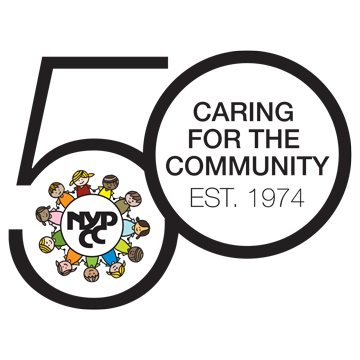This is a hidden accordian
Hidden via CSS HideAccordian
Workshops for Parents
Our workshops offer parents information and insights about age-appropriate behavior in their child’s development and how early intervention can prevent children from developing negative psychological experiences. The workshops also focus on the effects of trauma on children and how to prevent traumatic incidents from occurring. Every workshop is designed to help parents support their child’s mental well-being as well as their own.
NYPCC Agency Presentation
Full review of the high-quality Mental Health Services that New York Psychotherapy and Counseling Center provides.
Understanding Mental Health and How to Help Someone
In this workshop, you will learn about depression and anxiety, the two most common diagnoses in the United States. Education is the most important step to understanding the differences between illnesses, and disorders and how you can help someone who is being affected.
Stress Management
Stress is a barrier to a healthy body, mind, and fuel to unhealthy living. Triggers, signs, coping and prevention will be discussed.
Understanding Teenagers
Generational differences between parents and their kids often causes strains and challenges for both parties. Parents will have the opportunity to discuss and learn about the cycle of teen years. Special focus will be made on the importance of making parenting more about the relationship with the child and less about parenting rules.
Bridging the Gap Between Home and School
This workshop will focus on discussing the impact that parents, working in collaboration with the school, can have on a child’s educational experience. Emphasis will be made on relationships, both in and out of school, and how they can influence the child’s behavior and performance.
Self-Care: Me, Myself, and I
The self-care movement is now trending everywhere. Many people are going to spas, shopping, exercising all as a form of self-care. Nevertheless, we forget that self-care is also the work you do on the inside to grow as an individual. In this workshop, you will learn about what self-care is and how we can incorporate self-care practices into our daily routines to improve our mental well-being.
What Parents Should Know About Bullying Prevention
Young children are using social media for just about everything, including bullying. Every single day all across the world children are being bullied online, at school, or at home. Parents will be empowered to assist their children to stop bullying before it begins by educating themselves on how to recognize the signs and where to get the right resources for help.
Raising an Emotionally Healthy Child
In this workshop, parents will get to explore how allowing their children to express their feelings positively impacts their mental health. Often people think behavioral issues are synonymous with mental health issues, but there are subtle differences between the two. In this workshop, you will learn to distinguish between normal acting out and a mental health challenge.
Teaching Tolerance and Empathy
This workshop will help participants to recognize the strength it takes to create, balance and sustain an empathic mindset in a culture that does not always value it.
How to Raise a Resilient Child
In this workshop, parents will learn skills to teach their children on how to overcome adverse experiences that they face daily.
Workshops for School Professionals
Early recognition of emotional or mental health problems can be critical to a child’s academic success. Our educational programs are designed to help teachers and administrators identify warning signs and the type of help they can provide.
Preventing Work Burnout
Job burnout is a special type of work-related stress. Professionals will learn the signs and symptoms and identify what it means to feel burnt out and why self-care is important.
Work Anxiety
With the endemic in place and everyone returning to work in-person after so long, can make you feel anxious. Professionals will learn how to cope with the signs and symptoms of “work anxiety.”
Suicide Awareness
During this workshop, professionals will gain information to better understand the early signs and symptoms of potential suicide ideation. Professionals will also learn different ways to intervene through resources and support.
Effective Leadership Training
This training will cover several aspects of supervision, including team building and how to provide constructive feedback.
Improving the Work Environment: How to Bring Out the Best in People
Repetition can leave someone feeling uninspired and bored. Sometimes a simple switch to your daily routine can be the change you need to pump up productivity and spark some fresh work ideas. In this workshop we will discuss ways you can keep yourself inspired, enlightened, and motivated at work.
Mental Health 101
In this workshop, professionals will learn sign and symptoms and the differences between mental health challenges and mental illness and how to help someone.
The Importance of Men's Mental Health
Six million men are affected by depression in the United States every single year. Men die by suicide at a rate four times higher than women. The Importance of Men's Mental Health will look at stigma rooted in several factors such as myths about mental health, social norms, self-perception and cultural beliefs. These stigmas can make it harder for men to access the help they need as they struggle to verbalize their feelings, coupled with the ingrained belief that they should “man up” and deal with it themselves. This workshop will take a deep dive into these issues, provide a safe environment to openly discuss, and offer strategies to combat stigma and get the help that's needed.
The Impact of Trauma on Schools: Creating a More Sensitive School Environment
Traumatic events that students may face at school, in their families, and communities come in many forms. By integrating principles of trauma-informed care into classroom practices and responding to one's own needs for self-care, schools learn how to be proactive rather than reactive and incorporate the 3 R's: realize, recognize, and respond appropriately to behaviors through a trauma lens. This workshop will provide an overview of the ways a school community can begin to establish a Trauma Informed School.
